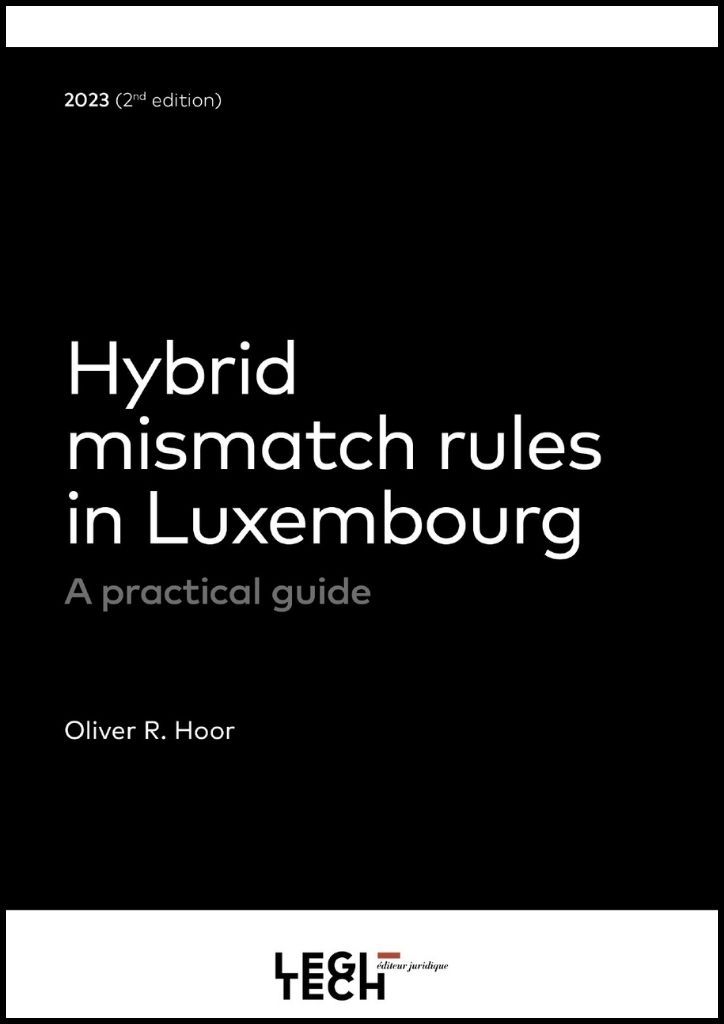Hybrid mismatches are the consequence of differences in the tax treatment of an entity, a financial instrument or a permanent establishment under the laws of two or more jurisdictions that may give rise to double taxation or double non-taxation.
Hybrid mismatches that result in double non-taxation have been high on the agenda of the Organisation for Economic Coordination and Development (“OECD”) in the context of the initiative against Base Erosion and Profit Shifting (“BEPS”). Action 2 of the BEPS Project aimed at developing recommendations regarding rules to be implemented in domestic tax law and tax treaties to tackle situations of double non-taxation.
On 29 May 2017, the Council of the European Union adopted Anti-Tax Avoidance Directive 2 (“ATAD 2”) that required EU Member States to implement as from 2020 all-encompassing hybrid mismatch rules that virtually cover any type of hybrid mismatch situation that is theoretically possible.
The hybrid mismatch rules are characterised by an extreme complexity that demands not only deep knowledge of Luxembourg tax law but also a good understanding of the tax laws of all foreign jurisdictions involved, ATAD 2 and the Final Report on BEPS Action 2 that is explicitly mentioned as a source of interpretation.
This book is a practical guide that analyses the scope, limits and mechanisms of the hybrid mismatch rules (Article 168ter of the LITL) and the reverse hybrid mismatch rule (Article 168quater of the LITL). As such, it will be a companion to readers on their journey to a full comprehension of the hybrid mismatch rules that can best be compared to 3D chess.
Oliver R. Hoor is a Partner in the International and Corporate Tax department of ATOZ.
A tax professional since 2003, Oliver has experience in Luxembourg and international taxation with a focus on alternative Investments (private equity, real estate, sovereign wealth funds, hedge funds), mergers & acquisitions and multinational groups. Oliver advises clients on all direct tax aspects regarding deal structuring, maintenance, reorganisations and exit planning.
He is Head of Transfer Pricing and the German Desk. Oliver is further a member of the tax working groups of the Association of the Luxembourg Fund Industry (ALFI) and the Luxembourg Private Equity Association (LPEA).
Oliver is the author of more than 300 articles and books on Luxembourg and international taxation including Transfer Pricing and related documentation requirements, the OECD Base Erosion and Profit Shifting (“BEPS”) Project and the EU Anti-Tax Avoidance Directives (ATAD 1 & 2), reporting obligations of tax intermediaries (DAC 6), current initiatives of the EU Commission in the field of direct taxation (ATAD 3, BEFIT, DEBRA, SAFE, DAC 8, …), the OECD Model Tax Convention and Tax Treaties, EU Law and the State Aid investigations of the EU Commission. He is also a regular speaker at conferences as well as a lecturer with Legitech and ILA.
Oliver is qualified as a Chartered Accountant in Luxembourg (“Expert-Comptable”) as well as a certified German tax adviser (“Steuerberater”). He holds a post-graduate degree in Luxembourg Tax and a degree in Business Administration with a major in Tax from the University of Applied Sciences of Trier (Germany).
I: Introduction
1. Overview
2. Hybrid mismatch rules
3. Reverse hybrid mismatch rule
II. The Hybrid Mismatch Rules
1. Overview
2. Scope of the hybrid mismatch rules
3. Tax treatment of hybrid mismatches
4. Cooperation duties of the taxpayer
5. Checklists
III: Impact of the Hybrid Mismatch Rules on Alternative Investments
1. Introduction
2. Typical Investment Structures
3. Scope and limits of the hybrid mismatch rules
4. Tax treatment of hybrid mismatches
5. Managing the impact of the hybrid mismatch rules
6. Burden of proof
7. Checklists
IV: The Reverse Hybrid Mismatch Rule
1. Overview
2. Scope of the reverse hybrid mismatch rule
3. Tax treatment of reverse hybrid mismatches
4. Cooperation duties of the taxpayer
5. Checklists
V: Case studies
1. A group of companies
2. Alternative Investments
3. The investment partnership
Télécharger la table des matières

